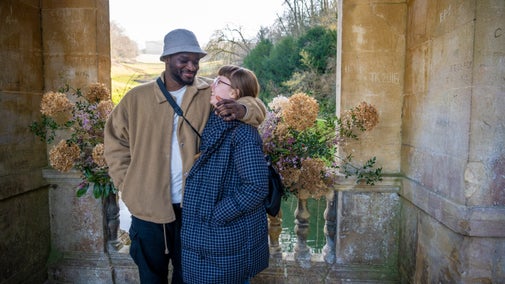c. 1090
The lakes are built
Bishop John de Villula (or John of Tours) who founded Bath Abbey, built the lakes on this land. At this point the land was associated with the Priory for farming carp and there are still carp in Prior Park’s lakes today.


The landscape at Prior Park has changed a lot since Ralph Allen began working on it in 1734. The original garden was much more formal and lacked the iconic Palladian Bridge, but quickly adopted a more natural style thanks to the influence of the poet Alexander Pope and possibly the famous landscape architect Capability Brown. Find out more about this transformation, into the garden you can explore today.
Ralph Allen was a local businessman who had Prior Park and its mansion built in the mid-18th century. From humble beginnings, Allen became one of the wealthiest men in the country and the impressive mansion made his status clear to everyone.
Born in Cornwall in 1693, Allen learnt about the postal system while helping his grandmother and uncle in the local office. At just 19, he became Postmaster of Bath and set about improving the system by creating a new network of postal roads.
He saved the Post Office an estimated £1,500,000 over 40 years. In this time, the young and wealthy Allen started to look for other business ventures.
Stone had been mined on Bath’s southern slopes since Roman times. Seeing an opportunity during a building boom, Allen bought all the small mines. Combining them into a single operation meant he could keep up with demand and then, to improve efficiency even more, he installed a railway.

Railways were new tech at the time and didn’t even have engines. The stone was loaded onto the carriages and sent down the hill using gravity and a brakeman. With money rolling in, Allen had the mansion built overlooking Bath to show off his stone as well as his status.
Arguably Prior Park’s best-known feature, the Palladian Bridge is an elegant and eye-catching piece of architecture and, built in 1755, it’s the last of its kind in England. The Palladian architecture style was influenced by the works of 16th-century Venetian architect Andrea Palladio and peaked in popularity in England during the 18th century.
There’s an unsolved mystery at Prior Park surrounding how far Lancelot ‘Capability’ Brown, the famous landscape architect, was involved in creating the garden.
No plan or record of a visit survives. However, evidence shows that when Ralph Allen died in 1764 he owed £60 to Brown, who was certainly in the area working on nearby estates between 1750 and 1765. The garden is very much in his English landscape style.
It was Alexander Pope, the poet, garden designer and regular visitor to Prior Park, who influenced Allen to shift his garden away from formality to a more natural style. It was this revolution in how landowners viewed their estates that allowed Brown to criss-cross the country applying the style so ingeniously to many places.
c. 1090
Bishop John de Villula (or John of Tours) who founded Bath Abbey, built the lakes on this land. At this point the land was associated with the Priory for farming carp and there are still carp in Prior Park’s lakes today.


Find out when Prior Park Landscape Garden is open, how to get here, the things to see and do and more.
There are all sorts of architecture and wildlife to be discovered at Prior Park, from bridges to a restored Edwardian summerhouse and kingfishers around the lakes.

After taking over the care of Prior Park in 1993, extensive restoration work has taken place, with the journey to transform it continuing to this day.

Brown designed landscapes that fitted in seamlessly with the surrounding countryside. So how do you spot the designs of one of the greatest gardeners of all time?

Learn about people from the past, discover remarkable works of art and brush up on your knowledge of architecture and gardens.
